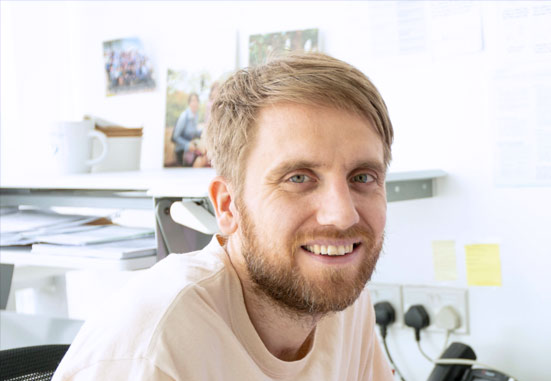In three words or phrases:
- Supportive – I operate an open-door policy for students.
- Goal driven – results (even when negative), not total time spent in the lab, is what matters.
- Collaborative – I believe science works best when we work together as a team.
Provision of Training
At first, I meet students weekly for a formal meeting and have regular informal discussions (open-door policy). This ensures the student has regular guidance and support. By the third year of the PhD, students should be more independent, with meetings once every two weeks typically.
In my lab, each student typically has a post-doc or senior student who works with them in their first year.
I encourage students to interact with others in their cohort to troubleshoot problems. More is learnt by trying by yourself or with other students rather than going straightaway to someone more experienced for the answer.
Progression Monitoring and Management
I like to be kept up to date on progress, but I am not a micro-manager. At our weekly meetings, I do not expect to see significant advances each time. For example, the discussion can include going through what is learnt in courses.
Students should take ownership of their projects. Though you will work with a post-doc or senior graduate student, you will have a distinct project that is yours. It is also important that you view the project as not set in stone, and you can suggest possible new directions or approaches.
I am here for advice and guidance to help you reach the goals you set for yourself.
Communication
I make extensive use of Slack and email in communicating with the lab. I can message at any time, but I do not expect an instant reply.
I expect students to be organised. They should keep a calendar to make sure they do not miss deadlines or meetings.
I am happy to discuss any issues that are impacting your ability to fulfil your potential or my/our expectations. I believe in discussing problems early with a constructive mindset towards problem solving.
PhD Students can expect scheduled meetings with me:
In a group meeting
At least once per week
In year 1 of PhD
At least once per week (except when the student is attending many courses, then we meet fortnightly)
In year 2 of PhD
At least once per fortnight
In year 3 of PhD
At least once per fortnight (it may be less frequent depending on progress)
These meetings will be mainly face to face, and I am usually contactable for a quick response on 4-5 days per week.
Work Patterns
The timing of work in my lab is flexible, and (other than attending pre-arranged meetings), I expect students to manage their own time. However, I strongly discourage working at night except when absolutely necessary. Animal care will require specific timetables to be kept.
Notice Period for Feedback
I need at least 1 week’s notice to provide feedback on written work of up to 5000 words.
